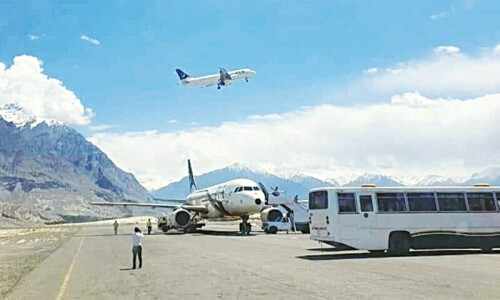ISLAMABAD: An international judicial conference on Saturday called for discouraging a roving and supervisory role of superior courts in efforts to ensure compliance with laws dealing with fundamental rights.
At its closing ceremony, Chief Justice Tassaduq Hussain Jillani read out a set of recommendations formulated at the two-day conference which was attended by local as well as foreign delegates.
The conference urged the superior judiciary to exercise its jurisdiction in such a manner that the courts were not overburdened with civil and political claims.
A declaration adopted at the conference proposed that the Supreme Court should exercise its suo motu jurisdiction under a structured and regulated scheme and said the principle of trichotomy of powers enshrined in the Constitution should be respected so that the exercise of judicial powers neither hampers nor stunts policies of the executive.
The sanctity of people’s trust in the legislature must be kept in mind while seeking judicial review of legislative instruments.
The subordinate judiciary should also play a pivotal role in safeguarding the fundamental rights of citizens.
The declaration urged the judiciary to ensure access to speedy justice and abridge the lengthy legal procedures and hurdles faced by the litigants.
It called for designating a court of sessions as a human rights court for a particular district. It said that legal aid facilities should be provided to the marginalised sections of society.
The declaration recommended that social, cultural and economic rights be identified as inalienable rights, to help foster social justice. The legislature should identify structural issues resulting from social and economic disparities which created hurdles in the fulfilment of constitutionally guaranteed fundamental rights.
The conference said the judiciary should remain conversant with human rights challenges being raised and addressed all over the world. The rights for protection of minorities must be effectively and meaningfully enforced.
The conference also called for an empirical study to examine the causes of maladministration in various jurisdictions of Pakistan’s judicial system. This study should focus on identifying the primary causes of delay; means of supplementing human resources and infrastructural capacity of courts; current public perception of fairness of the judicial process; sufficiency of the powers of the district judiciary for the purpose of providing proper/effective oversight of executive authorities as well as legislative, judicial and administrative measures which may be taken to provide greater access to justice.















































Dear visitor, the comments section is undergoing an overhaul and will return soon.